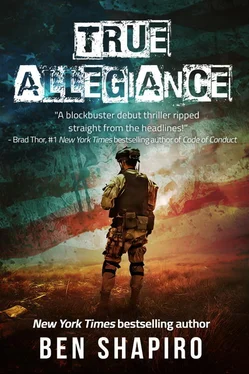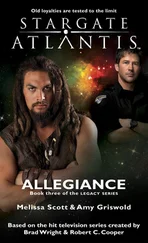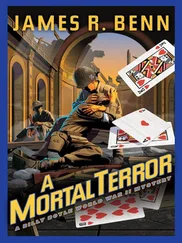He spotted Ellen and ran over to her, his face red with anger. “Your goddamn husband…”
“My goddamn husband was saving your life,” she said slowly.
Prescott laughed harshly. “Bullshit. He had a gun on him. He fired it. I want to know why.”
“That’s not his gun.”
“How the hell would you know? You haven’t seen your husband for months.”
“I know my husband.”
Prescott sneered. “Here’s what I think. I think your husband showed up at that event because he’s got a fixation with the imam. I think he’s so suspicious of the imam that he actually thought the imam was going to try some sort of attack on the event. And he came to break it up.” Prescott was working himself into a full rage, spittle flecking his upper lip. “I tried to reason with him. I tried to reason with you. But enough. I’ll find whatever charges I need to find to press against him.”
“Mr. President,” she said, “you need to calm down.”
“Calm down?! Have you seen these pictures? You said I was weak. You said it . Now, don’t I look weak? Like I can’t stand up to threat with the entire goddamn American military at my back?” He stormed past her. Tommy Bradley shrugged at her apologetically. As he followed the president, she grabbed his coat.
“Mr. Bradley, where are they holding Brett? He’s got to know this is crazy, right?”
Bradley looked at her, shrugged. “I don’t know anything,” he said. Then he followed his boss.
She sat, stunned. From her vantage point aboard Air Force One, through the windows of the airport, she could see guests filtering through security. Security, of course, was heavy—every person and their baggage moving through a metal detector and an X-ray machine, bomb-sniffing dogs all around. She’d gone through the same routine herself before being allowed onto Air Force One.
Except for a man she didn’t recognize at first, who emerged with his bodyguard from the presidential motorcade. The bodyguard carried a large duffel bag. Next to them stood a Secret Service agent; he carried a burn scar near his ear.
Secret Service quickly approached, but the agent drew them aside. After a brief conversation, they parted to let the men through.
Ellen put her head in her hands. She had no plan for Washington, DC—she and Brett hadn’t had time to come up with a strategy. But she knew she would have to turn the president down. And she knew that the consequences could mean legal action, maybe even military action, against the Republic of Texas, against her, and against Bubba Davis.
When she looked back to the front of the cabin, she saw the two men from the motorcade entering. She didn’t recognize the first. She felt a flash of recognition as she saw the second: Omari. As his colleague stuffed the duffel bag he’d been carrying in the overhead compartment, all she could see was Hassan’s body, facedown in the bathtub. What was so important about that tape? He knew Brett had seen it already—he knew Brett was tracking down the other man on the tape, clearly.
The safety announcements came over the loudspeaker. She buckled herself in, watching Omari and his man sit two rows ahead of her. Omari bowed his head, mumbling to himself. She couldn’t catch the words—they were in Arabic, and she didn’t speak the language anyway. The plane began to move.
The plane took off smoothly, flying to the northeast, then beginning to turn. Through her window, she could see the city fading behind her, leaving her husband behind, presumably in some cold cell somewhere. Air Force One continued to make a 180-degree turn, flying over the city. They’d gained altitude now, on the ascent as they moved south toward Washington, DC.
Then, oddly, the plane began to drop. The buildings of Manhattan grew nearer beneath the plane as Ellen watched curiously through the window. The voice of the pilot poured through the speakers: “Ladies and gentlemen, don’t be concerned. The president has requested that we descend to a lower level over the city of New York in order to take publicity photos.”
Publicity photos? Today? Ellen thought as the plane descended. As if the pilot were reading her mind, he continued: “The president wants to let Americans know he will not be cowed by any violent attempt against him. Thanks, and please ensure your seat belts are fastened.”
Ahead of her, Omari still muttered in Arabic.
Then he unbuckled and stood up. In his hand, he held what looked like a cell phone, powered on. He said, much louder now, “ La ilaha illa Allah .” Then again. The other man chanted along with him.
Suddenly it hit her: Mohammed had not sought out Omari for help. Mohammed had been a courier to Omari, bringing him a weapon. Brett had been right: they had planned the terrorist attack at the event, but the chaos had destroyed their timeline. Oh, Brett , she thought. Oh, Brett .
The plane circled lower as it approached the center of Manhattan. Ellen realized then what she had to do. Why, perhaps, God had given her no children to leave behind. Why she had been fated to marry a patriot and a military lifer. She was one, too: a soldier in a war. And she had to act now, before they hit downtown.
The other passengers looked around uncomfortably, paralyzed by a peculiar inability to overcome their political correctness. She unbuckled her seat belt and edged to the aisle. Then, she got up calmly and walked toward Omari. Before she could speak, Mahmoud cut her off, grabbed her hand, twisted it behind her back, then threw her to the ground. “He has a bomb!” she shouted.
Secret Service agents appeared behind Omari almost instantaneously; two agents pulled guns in the press cabin itself. Omari held up his phone. “All I want is to negotiate,” he said. “President Prescott will speak to me. I know he will.”
The agents froze. Omari had been invited by the president. This had to be an enormous mistake, something that could be worked out.
From the floor of the airplane, Ellen looked up at Omari. He was lying. She could see it. He was stalling for time. No more time , Ellen thought to herself. No more talk, negotiations, games . A line from her past crept into her head for some reason: No loitering, cadet . She almost smiled as she remembered.
“Take a bullet for you, babe,” she whispered to herself. Then she pushed herself to her feet, launched herself past a startled Mahmoud, and grabbed Omari’s phone.
Air Force One exploded at approximately two thousand feet. The daylight went bright, then brighter, a blinding green flash in the sky forcing people miles from the detonation to look away. The blast wave hit almost simultaneously with the light—those nearest the blast would never register it. The blast blew through skyscrapers, tearing them down sideways, their glass facades disintegrating almost instantaneously. It tore through Washington Heights, obliterated full blocks. It set the trees on fire through Fort Washington Park. Tenements blew apart like a house of cards. The shock wave exploded through the streets, disintegrating peoples’ clothes, ripping the flesh from their muscles, tearing their faces open, turning them to ash nearest the bomb site; further away, debris from the buildings killed hundreds more.
Tens of thousands of military men and women still in the midst of cleanup at the George Washington Bridge were killed almost instantaneously; thousands more of them were wounded, doomed to radiation poisoning, burned beyond recognition by the nuclear wind in the aftermath.
General Brett Hawthorne saw none of it. He was staring at the wall of his cell near Battery Park when the bomb went off; he merely saw the sky grow light.
He turned to stare into the distance. He saw the mushroom cloud rise above the profile of the new Freedom Tower. “Oh, no,” he whispered. “Oh, God, please, no.”
Читать дальше












